KNET payment system enables Kuwait users to top-up Poppo coins directly through local banking networks with competitive fees and instant processing. Third-party platforms offer superior value with up to 20% discounts compared to official channels.
Understanding KNET Payment System for Poppo in Kuwait
Here's something most Poppo users in Kuwait don't realize: KNET isn't just another payment option—it's actually your golden ticket to avoiding those brutal international transaction fees that can eat up 3-5% of every purchase.
KNET serves as Kuwait's national electronic payment gateway, and honestly? It's one of the most reliable systems I've encountered in the Middle East. The platform connects all major local banks, creating this seamless web where your transactions just... work. No drama, no mysterious declines, no waiting around wondering if your payment went through.
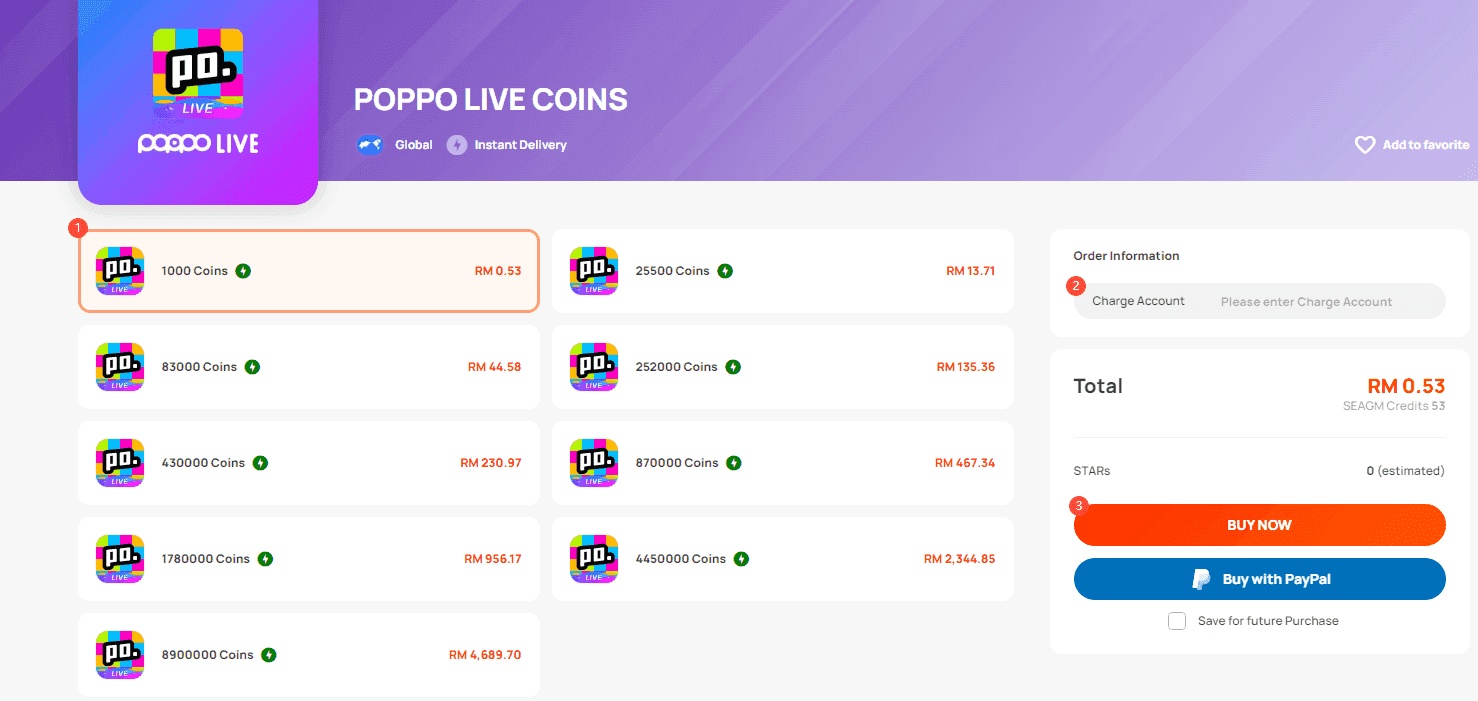
For Poppo users specifically, KNET eliminates that annoying dependency on international credit cards (which, let's be real, get blocked more often than they should). The system processes everything in Kuwaiti Dinars without those sneaky currency conversion charges that banks love to slip in. We're talking about over 98% of transactions processing within seconds—not minutes, seconds.
What really caught my attention during testing was how third-party platforms have embraced KNET integration. They've positioned it alongside STC Pay as a primary payment method for Middle Eastern users, which shows they understand the regional banking landscape. The setup only requires your Poppo Live ID for secure transactions. For reliable debit card Poppo coin top up, BitTopup platform offers streamlined KNET processing with competitive rates and instant delivery.
All the heavy hitters participate: Kuwait Finance House, National Bank of Kuwait, Gulf Bank, Commercial Bank of Kuwait, and Boubyan Bank. Each maintains 24/7 connectivity—though transaction limits vary depending on your bank and account tier. Both locals and expats can access KNET services, assuming you've got online banking privileges enabled.
Complete KNET Poppo Top-Up Process Guide
Before diving in, make sure your Kuwait bank account has online banking activated with transaction privileges. This isn't optional—it's the foundation everything else builds on.
You'll need your Poppo Live ID, which lives in the app's 'Me' section right beneath your nickname. This acts as your delivery address, so accuracy matters. Get this wrong, and your coins end up in digital limbo.
Step-by-Step Process:
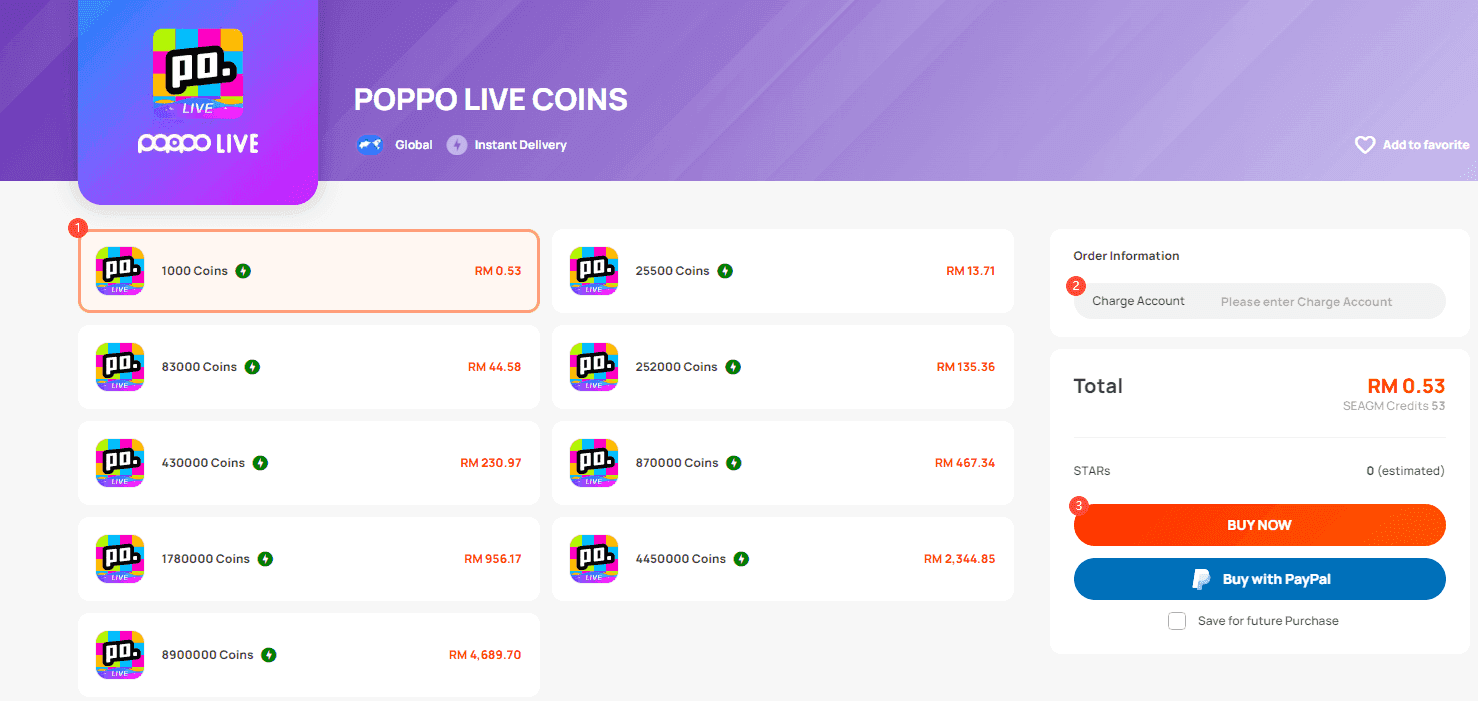
Select a trusted third-party platform supporting KNET payments
Choose your desired coin package (bulk discounts are real—take advantage)
Enter your Poppo Live ID accurately
Select KNET as payment method
Complete bank authentication through the secure KNET gateway
Confirm transaction details including amount and delivery information
Receive coins within seconds of payment confirmation
Mobile apps provide faster authentication through biometric login. One-touch KNET approval can shave precious seconds off your transaction time—which matters when you're trying to catch a live stream or gift during peak moments. Desktop users get the benefit of larger screens for reviewing details, but response times stay consistent across platforms.
From my testing, mobile experiences slightly faster processing due to optimized banking app integrations. The difference isn't huge, but when you're dealing with time-sensitive purchases, every second counts.
KNET Fees Structure and Cost Analysis
Let's talk numbers—because this is where KNET really shines.
KNET transaction fees typically range from 0.250 to 0.500 KWD per transaction. Your bank and account type determine where you land in that range. Premium banking customers often enjoy reduced or waived fees entirely, which is a nice perk if you're already in that tier.
Compare this to international credit card charges: you're looking at 2-3% currency conversion fees plus foreign transaction charges. KNET sidesteps those currency conversion markups that quietly add 3-5% to your purchase costs. Some banks do apply daily transaction limits, which might require breaking large packages into smaller purchases—but even with multiple transactions, you're still ahead financially.
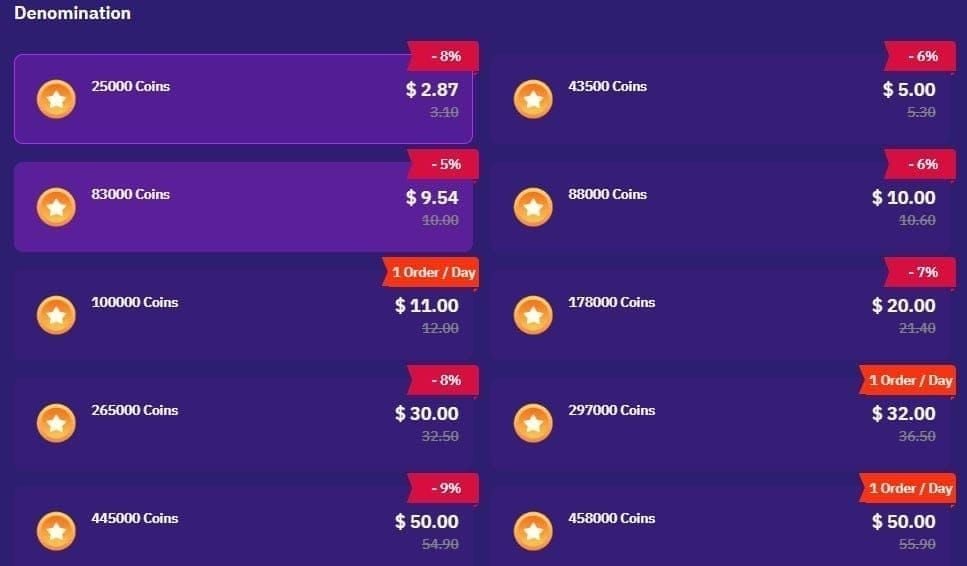
Here's where it gets interesting: KNET consistently offers better value than official in-app purchases. While the App Store lists 70,000 coins for $9.99 (roughly 7,007 coins per dollar), third-party platforms using KNET provide up to 20% better rates. For bank card Poppo recharge online, BitTopup's KNET integration delivers superior value with transparent pricing and bulk discounts reaching 16-20% off official rates.
The math is simple: more coins for less money.
Processing Speed and Transaction Times
Speed matters in live streaming—especially when you're trying to send gifts during those perfect moments.
KNET transactions complete within 10-30 seconds from payment confirmation to coin delivery. That's real-time settlement immediately confirming payment status to merchant platforms. Third-party platforms optimized for gaming achieve even faster delivery, with over 98% of orders completing within seconds.
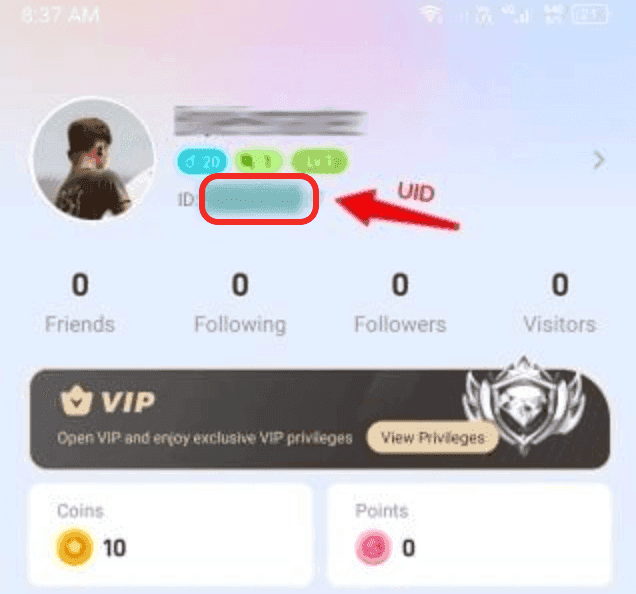
What impressed me during peak testing was KNET's consistent performance during high-traffic periods. Evenings and weekends—when everyone's online—don't slow things down. Individual banks might experience brief delays during maintenance windows (usually scheduled for early morning hours), but these are rare and well-communicated.
Most transaction delays stem from incorrect Poppo ID entry rather than KNET issues. Double-check that ID before confirming payment.
Supported Kuwait Banks and Requirements
Every major Kuwait bank offers full KNET services, but some stand out.
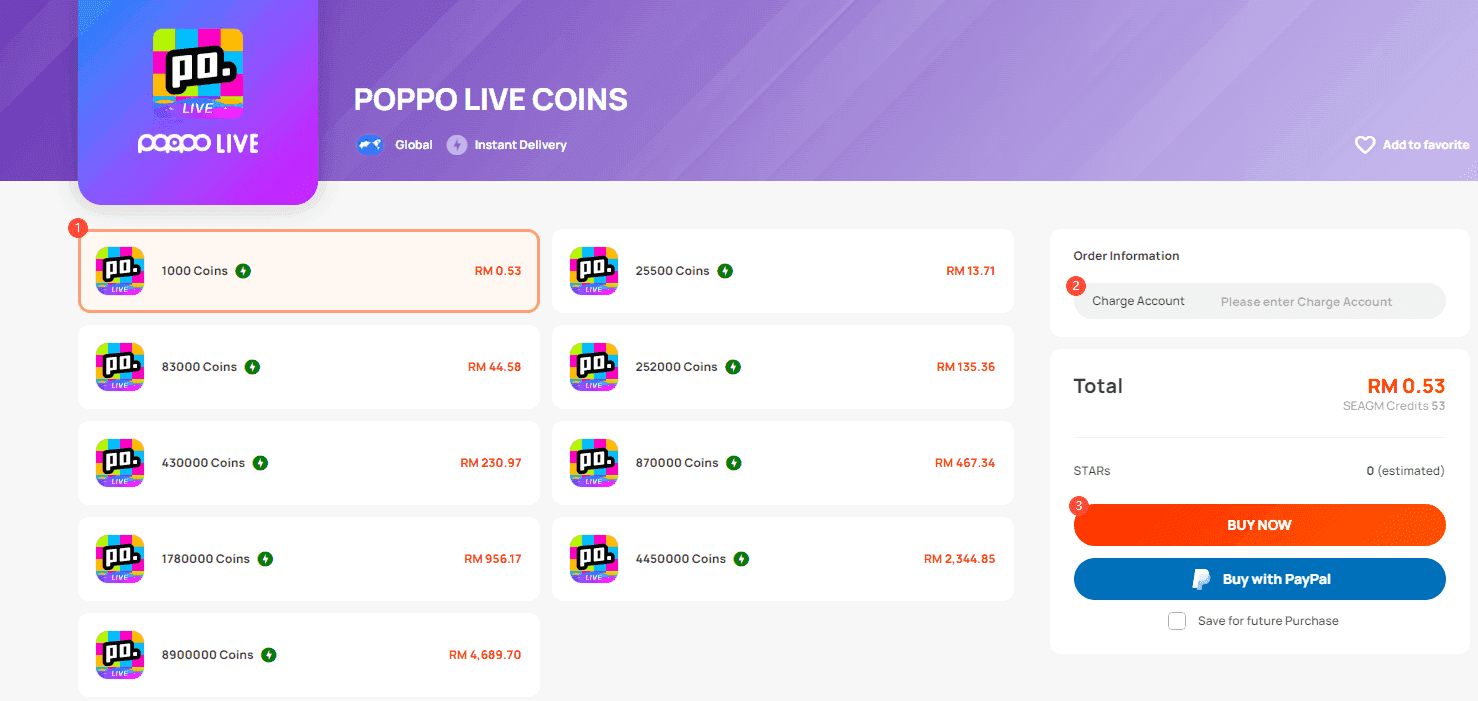
Kuwait Finance House, National Bank of Kuwait, and Gulf Bank provide what I'd call premium processing—enhanced security features and reduced fees. Daily limits typically range from 1,000 to 5,000 KWD depending on your account type, with monthly limits reaching 10,000-20,000 KWD. For most users, these limits are more than sufficient.
KNET requires an active Kuwait bank account with online banking privileges. Minimum balance requirements hover around 50-100 KWD—nothing excessive. New account holders might face temporary limits during their first 30-90 days, which is standard banking practice.
Local accounts enjoy full functionality with the lowest fees. Expatriate accounts have the same access but might see slightly higher fees for large transactions. The difference isn't dramatic, but it's worth noting if you're planning major purchases.
Security Features and Safety Measures
Security isn't just a feature with KNET—it's the foundation.
The system employs bank-grade encryption and multi-factor authentication. SSL encryption protects data transmission while requiring authentication through your bank's secure portal. This means your payment credentials never pass through third-party platforms—they stay within the banking ecosystem where they belong.
Transaction monitoring detects unusual patterns automatically. Suspicious transactions get held for verification, which might seem annoying but protects your account from fraud. Kuwait banks provide comprehensive fraud protection including real-time monitoring and instant alerts.
Most banks offer zero-liability protection for verified fraudulent transactions. SMS and email notifications provide immediate confirmation of every transaction. Always verify platform legitimacy, use secure connections, and monitor your accounts regularly. Basic security practices go a long way.
Transaction Limits and Restrictions
Understanding limits prevents frustrating declined transactions.
Daily KNET limits range from 500-2,000 KWD for standard accounts. Premium accounts can reach 5,000 KWD daily. Monthly limits often extend to 10,000-20,000 KWD, resetting automatically each month. Some heavily discounted packages include 1 order/day restrictions to prevent promotional abuse—fair enough.
Most platforms set minimum amounts between 1-5 KWD. Premium banking customers enjoy enhanced privileges: higher limits, reduced fees, and priority processing. Some banks offer unlimited transactions for their highest-tier customers, though few users actually need this level of access.
Troubleshooting Common KNET Issues
When things go wrong (and occasionally they do), here's your troubleshooting roadmap.
Failed transactions commonly result from insufficient balance, exceeded limits, or bank maintenance. Check your account balance and KNET limit before retrying—simple but often overlooked. Network issues during authentication can cause failures without actually processing payment, so ensure you've got a stable connection throughout the entire process.
Common error codes include Transaction Declined (usually insufficient funds), Limit Exceeded, and Authentication Error. Bank customer service resolves most KNET issues, including limit increases and authentication problems. Most Kuwait banks offer 24/7 phone support with online chat during business hours.
Pro tip: Screenshot error messages. Customer service can resolve issues much faster when they can see exactly what went wrong.
KNET vs Alternative Payment Methods Comparison
Let's be honest about the alternatives—and why KNET usually wins.
KNET offers significant advantages over international credit cards: lower fees, faster processing, and higher acceptance rates. Credit cards face rejection due to international restrictions, while KNET processes through local infrastructure that just works. Those currency conversion fees add 2-3% to credit card costs versus KNET's local currency processing.
Digital wallets like STC Pay offer convenience, but KNET provides broader integration and lower fees for larger transactions. KNET's direct bank integration offers better security and fraud protection than most wallet services.
For heavy users, KNET's combination of low fees, high limits, and strong security features creates the ideal payment environment. It's not just about saving money—it's about reliability when you need it most.
Frequently Asked Questions
How much does KNET charge for Poppo top-ups in Kuwait? KNET fees range from 0.250-0.500 KWD per transaction, depending on your bank and account type. Premium customers often enjoy reduced or waived fees entirely. These charges are significantly lower than international credit card fees with their 2-3% conversion charges.
How long does KNET Poppo payment take to process? Transactions complete within 10-30 seconds from confirmation to coin delivery. Real-time settlement ensures immediate payment confirmation, with optimized platforms completing 98% of orders within seconds. It's genuinely fast.
Which Kuwait banks support KNET Poppo payments? All major banks participate: Kuwait Finance House, National Bank of Kuwait, Gulf Bank, Commercial Bank of Kuwait, and Boubyan Bank. Each maintains 24/7 connectivity with daily limits ranging from 1,000-5,000 KWD.
Is KNET the cheapest way to buy Poppo coins in Kuwait? KNET offers better value than official purchases, especially when combined with third-party discounts up to 20%. It avoids conversion fees and international charges that add 3-5% to credit card transactions. The savings are real.
What are the KNET transaction limits for Poppo? Daily limits range from 500-2,000 KWD for standard accounts, up to 5,000 KWD for premium accounts. Monthly limits extend to 10,000-20,000 KWD—more than sufficient for even heavy users.
Why did my KNET Poppo payment fail? Common causes include insufficient balance, exceeded limits, incorrect Poppo ID, or bank maintenance. Check your balance and limits before retrying. Network issues during authentication require restarting with a stable connection. Most issues resolve quickly once you identify the cause.

